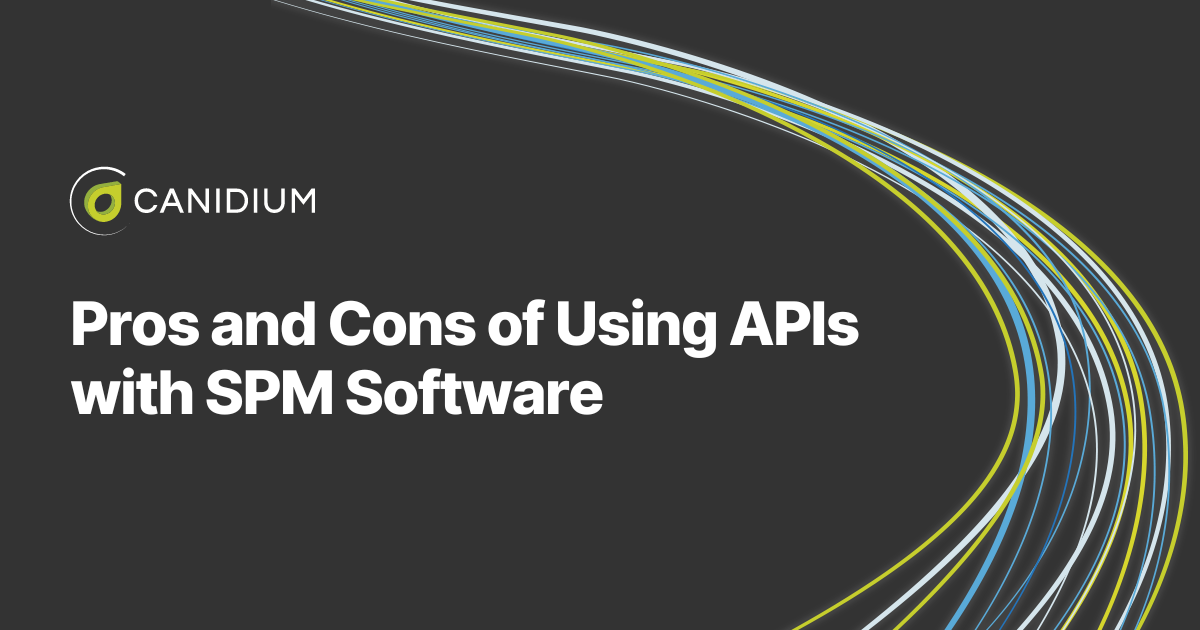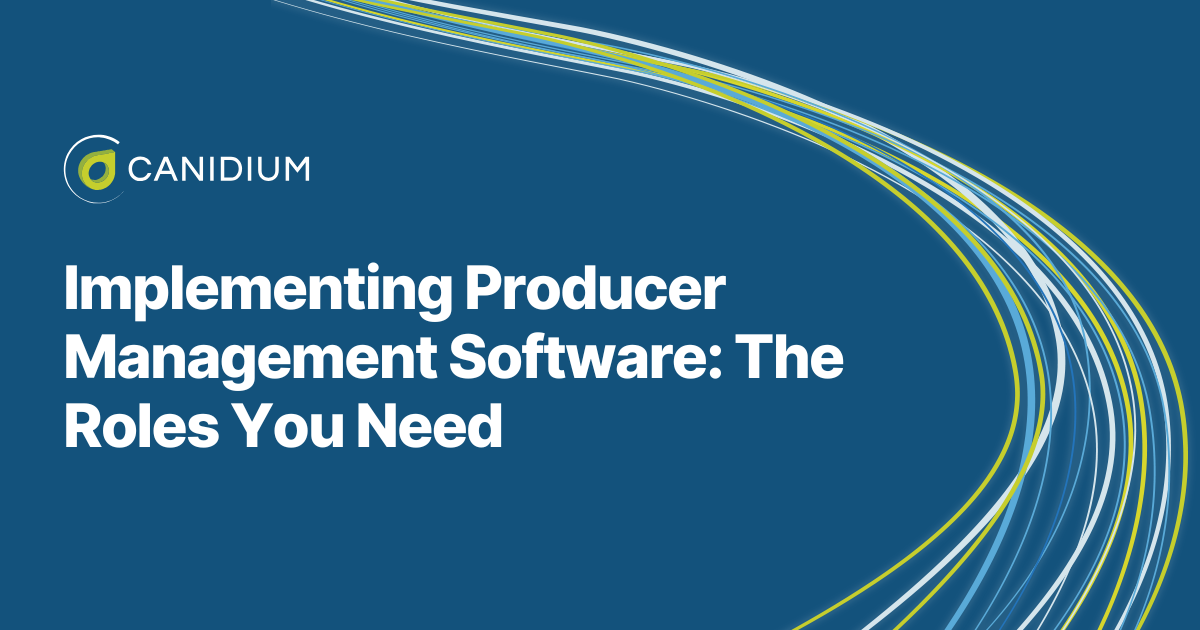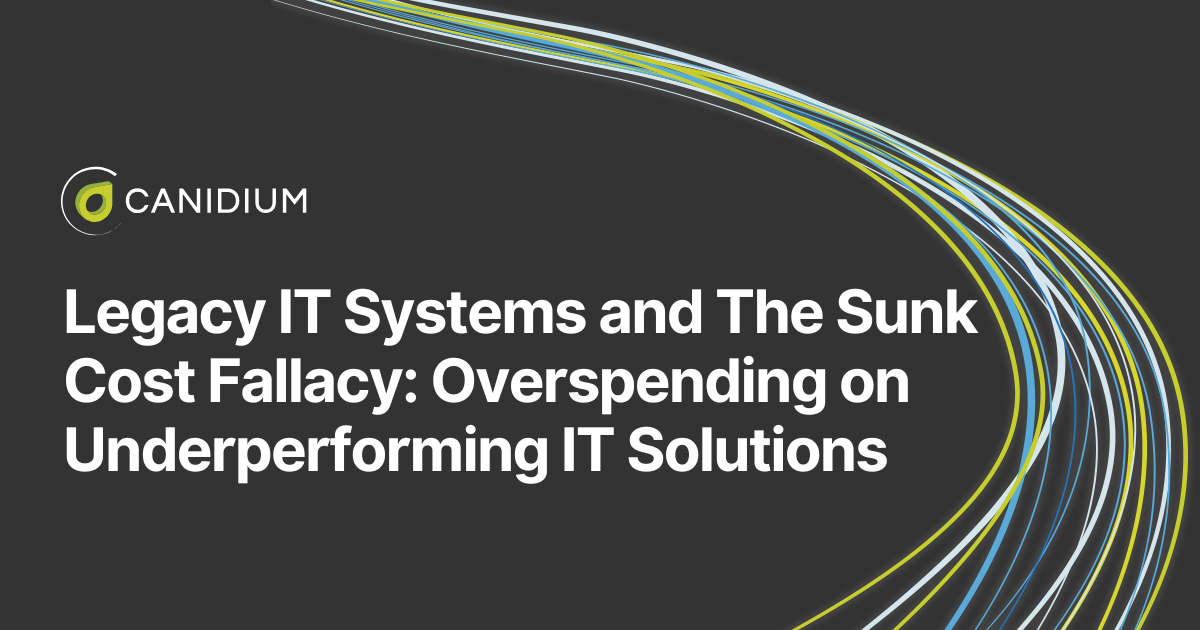At this point, most people in business have used or heard of APIs (Application Programming Interfaces). It’s a buzzword that is used frequently in relation to software. But do APIs serve a purpose with sales performance management (SPM) software?
APIs are widely misunderstood. People often expect too much of these solutions. It’s no mystery why: They are marketed as completely automated, hands-free tools when, in actuality, they do require maintenance.
APIs have also become increasingly popular in commission software implementation. APIs allow different software programs to communicate with each other, ideally providing an automated user experience and more integration between applications.
Since 2008, Canidium has implemented SPM solutions such as SAP SuccessFactors Incentive Management in many industries. We have seen technology advance over time and have adapted to changing automations and capabilities to create the most efficient solution for our clients. APIs have become an inevitable force in software implementation, and we have made a point of becoming experts on the matter.
While there are advantages to using APIs, there are also some potential drawbacks. In this article, we will explore:
- What an API is
- Pros of using APIs with SPM software
- Cons of using an APIs with SPM software
- A Native API solution: SAP Cloud Integration Suite
By the end of this article, you will understand whether or not APIs will be useful in your SPM software scenario.
What is an API?
An API, or Application Programming Interface, allows different software programs to communicate with each other, allowing them to exchange data and functionality. In other words, APIs enable developers to access and use certain features or data of an existing software application in their own application without having to rebuild the whole software from scratch. This allows for greater efficiency, as developers can focus on building new functionality on top of existing software rather than starting from scratch.
Pros of Using APIs with SPM software
Increased Efficiency
One of the primary benefits of using APIs with SPM software is increased efficiency. APIs allow data to be transferred between different software programs quickly and easily, eliminating the need for manual data entry. This means that commission calculations can be performed faster, and commission statements can be generated more quickly. Additionally, APIs can help reduce errors during manual data entry, further increasing efficiency.
Improved Accuracy
Using APIs with SPM software can also improve accuracy. Since data is transferred automatically between different software programs, there is less chance for human error to occur. This can be especially important when dealing with large amounts of data, as even small errors can significantly impact commission calculations. By using APIs, commission calculations can be performed more accurately, resulting in more satisfied employees and fewer disputes.
Increased Flexibility
Another benefit of using APIs with commission software is increased flexibility. APIs allow different software programs to communicate with each other, regardless of the programming language or platform they are built on. This means that SPM software can be integrated with other software programs, including CRMs, ERPs, and accounting software. This can be especially useful for companies that use multiple software programs, as it allows them to create a seamless employee experience.
Reduced Costs
Using APIs with commission software can also help to reduce costs. Since APIs allow data to be transferred automatically between different software programs, there is less need for manual data entry. This can save time and money, reducing the labor required to perform commission calculations. Additionally, using APIs can help reduce errors, ultimately leading to fewer disputes and less time spent resolving them.
Cons of Using APIs with Commission Software
Security Risks
One potential drawback of using APIs with commission software is security risks. Since APIs allow different software programs to communicate with each other, sensitive data could be accessed by unauthorized users. Additionally, if the API is not properly secured, it could be vulnerable to hacking attempts. To mitigate these risks, it is important to implement appropriate security measures, such as data encryption and authentication protocols.
Compatibility Issues
Another potential drawback of using APIs with SPM software is compatibility issues. APIs are designed to work with specific software programs, and if the software programs are not compatible, data transfer may not be possible. This can lead to errors and delays in commission calculations, ultimately impacting employee satisfaction. To avoid compatibility issues, it is important to ensure that all software programs are compatible with the API being implemented.
Complexity
Using APIs with SPM software can also add complexity to the overall system. APIs require additional configuration to ensure the source and target systems are in sync, which can be time-consuming and costly. Additionally, if the API is not properly implemented, it could cause errors and delays in commission calculations. To mitigate this risk, working with experienced developers with expertise in API integration is important.
Maintenance Costs
Finally, using APIs with SPM software can also increase maintenance costs. Since API integrations require additional programming and configuration, ongoing maintenance and updates may be necessary to ensure the API continues working properly. This can be time-consuming and expensive, especially if the providers update the APIs frequently. To reduce maintenance costs, choosing a reliable API provider and working with experienced developers who can provide ongoing support and maintenance is important.
A Native API solution: SAP Cloud Integration Suite
SAP Cloud Integration Suite is a comprehensive cloud-based integration platform offered by SAP. It provides a range of tools and services designed to simplify and streamline the integration of diverse applications, data sources, and systems. It enables organizations to connect and integrate various systems, applications, and data sources. Some of the benefits this tool can provide to SAP SuccessFactors Incentive Management users are:
Process Integration
SAP Cloud Integration Suite allows organizations to design, automate, and manage end-to-end business processes across different systems and applications. It provides visual development tools and workflow capabilities to create complex integration scenarios and orchestrate data and process flows across the enterprise.
Data Integration
The suite facilitates seamless data integration by enabling organizations to extract, transform, and load data from various sources into a unified format. It supports data mapping, transformation, and validation capabilities, allowing businesses to ensure the consistency and accuracy of data across different systems.
API Management
SAP Cloud Integration Suite includes API management capabilities, allowing organizations to expose and manage APIs for internal and external consumption. It provides features like API security, access control, rate limiting, and analytics, enabling organizations to effectively govern and monitor API usage.
Monitoring and Analytics
The suite offers robust monitoring and analytics capabilities, allowing organizations to gain real-time visibility into their integration landscape. It provides dashboards, logs, and alerts to track integration performance, health, and utilization, enabling proactive monitoring, issue identification, and troubleshooting.
APIs and Their Usefulness with SPM Software
APIs offer a range of benefits for commission software implementation, including increased efficiency, improved accuracy, increased flexibility, and reduced costs. However, potential drawbacks, such as security risks, compatibility issues, complexity, and maintenance costs, must also be considered.
By carefully weighing the pros and cons of using APIs with commissions software, companies can make informed decisions that will help them create a high-efficiency commissions software solution.
However, companies often need help deciding what APIs, if any, will realistically augment their SPM software. Canidium has been creating custom, high-impact SPM solutions since 2008. To learn more about building a supercharged commissions solution, fill out the short form below.
Contact one of our experts
Want to learn more about SAP Commissions software implementation? Check out this article about The Top 3 Pain Points in Software Implementation.








